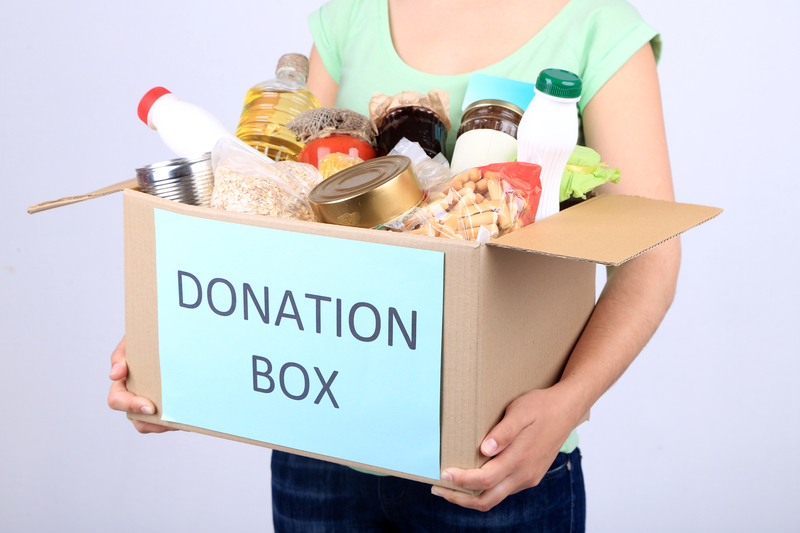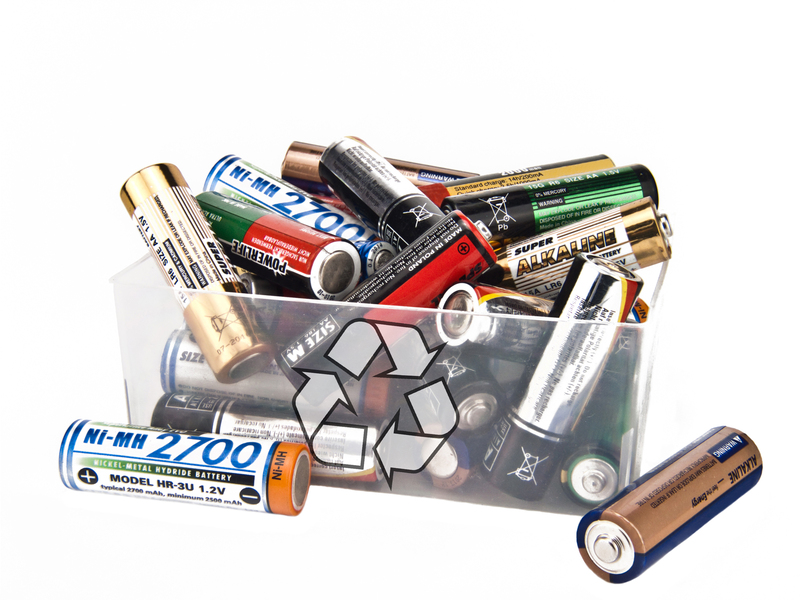Streamlined Plant Pot Disposal Techniques: The Comprehensive Guide
Looking for efficient ways to get rid of your old plant pots? Streamlined plant pot disposal techniques are crucial for gardeners, homeowners, and businesses aiming to be sustainable and organized. Disposing of plant pots improperly can harm the environment and clutter landfills, making effective, eco-friendly methods essential. In this in-depth guide, readers will discover the best practices to dispose of, recycle, and even reuse plant pots with minimal hassle.

Why Responsible Plant Pot Disposal Matters
Before delving into plant pot disposal methods, it's important to understand why responsible handling is essential. Plant pots, often made of plastic, terracotta, or biodegradable materials, can accumulate significantly over gardening seasons. Improper disposal contributes to landfill waste, resource depletion, and pollution. By adopting streamlined disposal techniques, you help maintain a cleaner environment, promote resource conservation, and can even save money.
The Environmental Impact of Plant Pots
- Plastic Waste: Most plant pots are plastic, which takes centuries to decompose, leaching chemicals into soil and water.
- Limited Recycling Options: Many recycling facilities don't accept certain plastics.
- Clay and Terracotta: Though natural, these pots can break down in landfills slowly and release dust.
- Biodegradable Pots: These are made from materials like coconut coir or peat but sometimes end up in landfills due to improper disposal.
Understanding the Types of Plant Pots for Easier Disposal
- Plastic Pots: The most common and tricky to dispose of, unless made from recyclable plastics like #2 (HDPE) or #5 (PP).
- Terracotta and Clay: Made from natural materials, easier to break down but heavy and not always suitable for landfills.
- Ceramic Pots: Glazed and painted, requiring special consideration as they may contain chemicals.
- Biodegradable Pots: Made from organic matter, these can compost under the right conditions.
Streamlined Plant Pot Disposal Techniques
Here are step-by-step, optimized solutions for various types of plant pots, ensuring your disposal processes are both efficient and environmentally responsible.
1. Recycling: The Preferred Route for Plastic Pots
Recycling remains one of the most efficient streamlined plant pot disposal techniques--especially for plastics. However, not all recycling centers accept garden plastics due to their composition and residues.
- Check Local Guidelines: Examine your local council's website for information on plastic recycling programs. Some have dedicated drop-off days for garden plastics.
- Clean Thoroughly: Remove soil, roots, and plant debris before recycling. Most facilities won't accept dirty items.
- Look for Numbers: Check the recycling number on the pot's base. Many facilities accept #2 (HDPE) and #5 (PP) plastics but not #6 or unmarked plastics.
- Reuse Before Recycling: Some nurseries have a take-back program for old pots; call ahead to ask if yours participates.
2. Reusing: Sustainable and Cost-Effective
If you want to avoid waste altogether, reusing plant pots is a fantastic solution and aligns with eco-friendly plant pot disposal methods.
- Gift to Friends and Community Gardens: Offer pots to local garden clubs, community projects, or friends starting their plant collection.
- Arts and Crafts: Repurpose plant pots for DIY projects--like organizing tools, seed starters, or even as quirky storage containers.
- At-home Planters: Use old pots for propagating cuttings, growing herbs, or as decorative holders for other items.
- Pot Exchange Initiatives: Some hardware stores and nurseries organize pot swaps.
3. Composting and Biodegradable Pot Solutions
For biodegradable pots made from materials such as peat, coconut coir, or paper pulp, composting is a straightforward option.
- Compost Piles: Break biodegradable pots into smaller pieces and add to your home compost bin or pile.
- Community Composting: If you lack a compost setup, inquire about municipal or community garden composting programs.
- Planter Direct Transfer: Some biodegradable pots are designed to be planted directly into the soil, where they naturally decompose.
4. Terracotta and Ceramic Pot Solutions
Terracotta and ceramic pots don't recycle easily and aren't biodegradable, but they are highly reusable.
- Cracked or Broken Pots: Break these into shards for use as drainage material at the bottom of new planters.
- Garden Decor: Repurpose as garden markers, mosaic pieces, or rustic decorative features.
- Community Donation: Local schools, art groups, and gardens may welcome these for various projects.
How to Dispose of Plant Pots in Bulk: Commercial & Urban Solutions
For commercial gardeners or those managing large urban environments, streamlined plant pot disposal on a large scale requires a systematic approach.
Partnering with Recycling Companies
- B2B Recycling Contracts: Many waste management companies offer collection and recycling services tailored for garden centers and landscaping firms.
- Bulk Drop-offs: Organize periodic bulk drop-offs to municipal recycling centers or specialized third-party services.
Nursery Return Programs and Take-back Initiatives
- Collection Bins: Many nurseries and big-box stores like Lowe's and Home Depot offer bins specifically for plant pot drop-off.
- Community Drives: Partner with local organizations to establish annual or seasonal plant pot collection events.
Tips to Streamline Your Plant Pot Disposal Process
To make the task as efficient as possible, follow these expert tips and optimize your plant pot disposal routine:
- Organize by Type and Condition: Separate pots based on material and intactness to save time later.
- Schedule Regular Cleanouts: Don't let old pots pile up--set a date each season to review and dispose of pots.
- Store for Future Reuse: Keep a stash of the most versatile pots for upcoming planting projects.
- Educate Family and Staff: Share disposal standards with everyone involved to keep the process efficient.
Management of Unusual or Specialty Pots
Not all plant pots are standard. Here's how to handle specialty items:
- Large Planters: Sell online, donate, or upcycle into outdoor furniture.
- Resin or Composite Pots: Consult manufacturer instructions or contact local recycling programs.
- Decorative, Painted, or Glazed Pots: Consider art projects or offer to local artists or schools.
The Future of Plant Pot Disposal: New Innovations
With the rise of sustainable gardening and eco-conscious consumers, manufacturers are developing new plant pot disposal solutions. Some innovations include:
- Returnable Deposit Pots: Some nurseries now use pots that include a refundable deposit, encouraging returns and reuse.
- Recyclable Pot Design: Producers are shifting toward single-material, easily identifiable plastics for smoother recycling.
- Advanced Biodegradable Materials: Innovations in plant pot design include pots that actively enrich the soil as they break down.

Simplifying the Disposal Journey: A Step-By-Step Summary
- Assess: Identify materials and potential for reuse or recycling.
- Clean: Thoroughly wash all pots to remove soil and residue.
- Sort: Group by material--plastic, biodegradable, ceramic, terracotta.
- Research: Find local disposal options (recycling, nursery drop-off, composting).
- Execute: Transport and dispose as per your findings; reuse wherever possible.
Conclusion: Efficient, Eco-friendly Plant Pot Disposal for Everyone
By following these streamlined plant pot disposal techniques, your gardening habits become more sustainable and organized. Whether you're a seasoned horticulturist or a weekend plant enthusiast, efficient disposal methods keep your space tidy and your environmental impact positive. Remember, every reused, recycled, or composted plant pot counts toward a greener planet.
Ready to streamline your plant pot disposal? Start today--reuse, recycle, and compost to keep your garden and the earth flourishing!